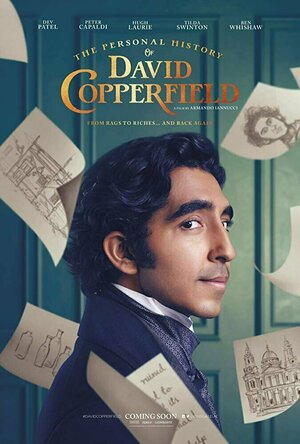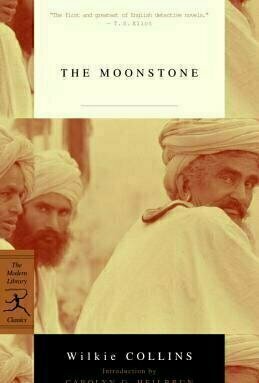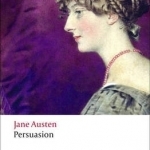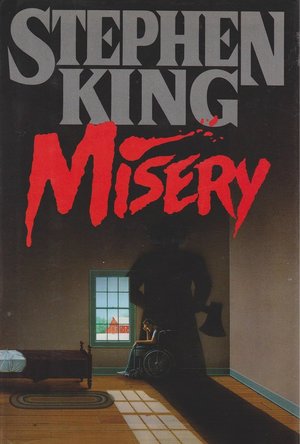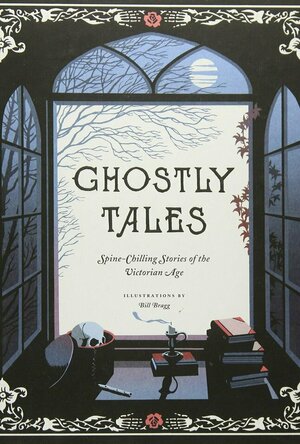Search
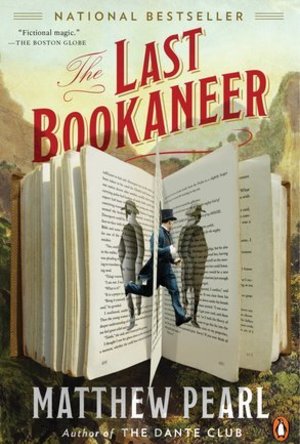
The Last Bookaneer
Book
book′a-neer′ (bŏŏk′kȧ-nēr′), n. a literary pirate; an individual capable of doing all...
Lee (2222 KP) rated The Personal History of David Copperfield (2019) in Movies
Jan 26, 2020
Based on the famous and beloved novel by Charles Dickens, Armando Iannucci (Veep, The Thick of It, The Death of Stalin) brings us this fresh new take on David Copperfield. And it’s like no other Dickens adaptation you’ve ever seen before.
Dev Patel stars as Copperfield, the star and narrator of the story which charts his personal rise from rags to riches during Victorian England. We begin though with Copperfield as an adult, recounting his life story to a small theatre audience as he steps into a painted backdrop behind him on stage, transporting him, and us, to the location of his birth. He enters the family home and continues to narrate from within the scene as his mother struggles with labour. It’s just one of a variety of wonderfully inventive storytelling devices that the movie employs throughout.
While the chaos of childbirth plays out, the first in a long line of star-studded supporting characters arrives, David’s eccentric Aunt Betsey (Tilda Swinton), and we immediately get a glimpse of the kind of humour Iannucci has brought to the story as she sets about upsetting Peggotty, the family housekeeper, and declares that the baby will definitely be a girl.
From there, the storyline is fast paced, weaving between locations as David grows up - from an overturned boat house in Yarmouth, to the chaos of London and the difficulties of working in a bottle factory, and on to the Kent countryside. Along the way we meet yet more big names, including Peter Capaldi, Ben Whishaw, Hugh Laurie, Paul Whitehouse and Benedict Wong. Not to mention countless other recognisable faces.
The Personal History of David Copperfield is a real mixing pot of beautiful visuals, quirky humour and larger than life characters. Realism has been ditched in order to deliver a whimsical tale that is accessible to all ages. Unfortunately though, it just didn’t work for me. Aside from the opening scenes, and the occasional moment later on, the humour didn’t land at all. In fact, I got more laughs from the incredible movie Parasite that I saw just the night before seeing this.
Dev Patel, always impressive and enjoyable in everything he does, is charming as David Copperfield and is definitely the standout. Benedict Wong and Hugh Laurie were both enjoyable, but I felt the others all suffered from a script that just wasn’t strong enough. A beautifully shot movie, bold and bright and vibrant, but instantly forgettable.
Dev Patel stars as Copperfield, the star and narrator of the story which charts his personal rise from rags to riches during Victorian England. We begin though with Copperfield as an adult, recounting his life story to a small theatre audience as he steps into a painted backdrop behind him on stage, transporting him, and us, to the location of his birth. He enters the family home and continues to narrate from within the scene as his mother struggles with labour. It’s just one of a variety of wonderfully inventive storytelling devices that the movie employs throughout.
While the chaos of childbirth plays out, the first in a long line of star-studded supporting characters arrives, David’s eccentric Aunt Betsey (Tilda Swinton), and we immediately get a glimpse of the kind of humour Iannucci has brought to the story as she sets about upsetting Peggotty, the family housekeeper, and declares that the baby will definitely be a girl.
From there, the storyline is fast paced, weaving between locations as David grows up - from an overturned boat house in Yarmouth, to the chaos of London and the difficulties of working in a bottle factory, and on to the Kent countryside. Along the way we meet yet more big names, including Peter Capaldi, Ben Whishaw, Hugh Laurie, Paul Whitehouse and Benedict Wong. Not to mention countless other recognisable faces.
The Personal History of David Copperfield is a real mixing pot of beautiful visuals, quirky humour and larger than life characters. Realism has been ditched in order to deliver a whimsical tale that is accessible to all ages. Unfortunately though, it just didn’t work for me. Aside from the opening scenes, and the occasional moment later on, the humour didn’t land at all. In fact, I got more laughs from the incredible movie Parasite that I saw just the night before seeing this.
Dev Patel, always impressive and enjoyable in everything he does, is charming as David Copperfield and is definitely the standout. Benedict Wong and Hugh Laurie were both enjoyable, but I felt the others all suffered from a script that just wasn’t strong enough. A beautifully shot movie, bold and bright and vibrant, but instantly forgettable.
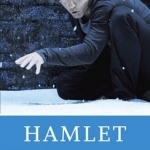
Hamlet: Text of the Play, the Actors' Gallery, Contexts, Criticism, Afterlives, Resources
William Shakespeare and Robert S. Miola
Book
This Norton Critical Edition of Hamlet features a newly edited text based on the Second Quarto...
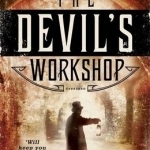
The Devil's Workshop: Scotland Yard Murder Squad: Book 3
Book
The Devil's Workshop is the third historical thriller in Alex Grecian's acclaimed Scotland Yard...
Phil Leader (619 KP) rated The Moonstone in Books
Nov 20, 2019
Of all the books I had to read at school, The Moonstone was probably the only novel I really enjoyed. It is one of the first 'whodunnit' type of books and, remarkably, it manages to hit virtually every requirement of the genre dead centre. If this book was written today, it would still be a classic.
The Moonstone of the title is a rare yellow diamond, stolen from an Indian shrine by colonialists. Thought to be unlucky it is left to the young Rachel Verinder. The night after her 18th birthday party the stone is stolen from her rooms, and the rest of the novel describes how the various players eventually manage to solve the crime.
The plot features twists and turns galore, false trails and red herrings enough for two detective stories. Although the crime involved is 'only' theft rather than the more usual murder it is no less engaging as a story. The characters are well drawn and - social reformer that Collins was - there are strong women and intelligent and interesting servants as well as the landed gentry and philanthropists that inhabit the world of country estates in the mid 19th century that the novel is set in.
One feature of the book is that the story is told from the viewpoint of a number of the players. Firstly (and for nearly half the book) we are introduced to the Verinders and the theft by Gabriel Betteredge, a long serving family retainer who is head of the staff and a sort of de facto butler. Betteredge's narrative is charming and witty, full of dry asides and observations. His habit of picking passages from Robinson Crusoe and applying them to daily life is a quirk that is completely in keeping with his character.
Once the story moves to London, the narrative is taken up by various other characters, sometimes just for a short journal entry, sometimes for extended periods of time. Collins imbues each of these parts with a different voice really skillfully, keeping each character very separate.
The solution to the mystery of who stole the diamond and why is convoluted but also very simple. The whole story is well crafted and fits together really well.
The only negative points really are those imposed on Collins by the time he was writing this. There is an overlong introduction about the diamond in India (it seems that in Victorian novels the long winded introduction is somehow expected by the reader) and the pace slows somewhat in London as there is a lot of description about the character's social standings and financial affairs that just aren't as relevant today.
Nevertheless this really is as good a book as I remember. I certainly rate Collins a lot higher than Charles Dickens as a writer. Definitely recommended for anyone who likes a detective mystery which will keep the reader guessing until the very end.
The Moonstone of the title is a rare yellow diamond, stolen from an Indian shrine by colonialists. Thought to be unlucky it is left to the young Rachel Verinder. The night after her 18th birthday party the stone is stolen from her rooms, and the rest of the novel describes how the various players eventually manage to solve the crime.
The plot features twists and turns galore, false trails and red herrings enough for two detective stories. Although the crime involved is 'only' theft rather than the more usual murder it is no less engaging as a story. The characters are well drawn and - social reformer that Collins was - there are strong women and intelligent and interesting servants as well as the landed gentry and philanthropists that inhabit the world of country estates in the mid 19th century that the novel is set in.
One feature of the book is that the story is told from the viewpoint of a number of the players. Firstly (and for nearly half the book) we are introduced to the Verinders and the theft by Gabriel Betteredge, a long serving family retainer who is head of the staff and a sort of de facto butler. Betteredge's narrative is charming and witty, full of dry asides and observations. His habit of picking passages from Robinson Crusoe and applying them to daily life is a quirk that is completely in keeping with his character.
Once the story moves to London, the narrative is taken up by various other characters, sometimes just for a short journal entry, sometimes for extended periods of time. Collins imbues each of these parts with a different voice really skillfully, keeping each character very separate.
The solution to the mystery of who stole the diamond and why is convoluted but also very simple. The whole story is well crafted and fits together really well.
The only negative points really are those imposed on Collins by the time he was writing this. There is an overlong introduction about the diamond in India (it seems that in Victorian novels the long winded introduction is somehow expected by the reader) and the pace slows somewhat in London as there is a lot of description about the character's social standings and financial affairs that just aren't as relevant today.
Nevertheless this really is as good a book as I remember. I certainly rate Collins a lot higher than Charles Dickens as a writer. Definitely recommended for anyone who likes a detective mystery which will keep the reader guessing until the very end.
Janeeny (200 KP) rated Persuasion in Books
Jun 10, 2019
I’m always a little dubious about certain ‘Classics’. Give me a Charles Dickens or an HG Wells any day of the week and I’m happy. I become a little more dubious around what I call ‘society’ classics, like George Elliot and Jane Austen. It all stems from the time I read Middlemarch and found it to be a 900 page soap opera where NOTHING ACTUALLY HAPPENS!! Although so far I have never been disappointed by a Jane Austen novel, when I have to read a book that essentially revolves around social customs and classes I break out in a cold sweat! .
So I was a little apprehensive when my recommended book for the month from my Penguin Reading challenge was 'Persuasion', but at 249 pages I thought I’d just crack on and get it over with.
I was pleasantly surprised.
Persuasion is about a young woman named Anne Elliot who, previous to the beginning of the story, was betrothed to Naval Officer Frederick Wentworth, but broke it off after being 'persuaded' (see what they did there!) by her family and a close friend that the match was beneath her. It is seven years later and Anne discovers that Wentworth has returned and is, lamentably, involved in her social circle. What follows is a deep exploration of Anne's feelings, thoughts and regrets on the decision she made 7 years ago, and the circumstances that may allow her to make amends.
As I said before I haven’t been disappointed by a Jane Austen novel yet, and this one was no exception. It is essentially a ‘will they wont they’ story that does keep you guessing until the end. Whilst it is a basic storyline it is laced with little dramas that keep you engaged but do not overshadow the main story.
In the introduction in my book it says that Jane Austen once described Anne Elliot as “almost too good for me” I can understand what she means as Anne is a very self-effacing heroin. She puts others thoughts and needs before her own and has an equitable view of the world. Unfortunately in my eyes this does make her far too pliant, and whilst this aspect of her does lend to the back story of why she never married Wentworth seven years ago, when she is insulted and exploited by her family I did find myself wishing she had a little more gumption.
Aside from that I found it a very pleasant societal love story.
So I was a little apprehensive when my recommended book for the month from my Penguin Reading challenge was 'Persuasion', but at 249 pages I thought I’d just crack on and get it over with.
I was pleasantly surprised.
Persuasion is about a young woman named Anne Elliot who, previous to the beginning of the story, was betrothed to Naval Officer Frederick Wentworth, but broke it off after being 'persuaded' (see what they did there!) by her family and a close friend that the match was beneath her. It is seven years later and Anne discovers that Wentworth has returned and is, lamentably, involved in her social circle. What follows is a deep exploration of Anne's feelings, thoughts and regrets on the decision she made 7 years ago, and the circumstances that may allow her to make amends.
As I said before I haven’t been disappointed by a Jane Austen novel yet, and this one was no exception. It is essentially a ‘will they wont they’ story that does keep you guessing until the end. Whilst it is a basic storyline it is laced with little dramas that keep you engaged but do not overshadow the main story.
In the introduction in my book it says that Jane Austen once described Anne Elliot as “almost too good for me” I can understand what she means as Anne is a very self-effacing heroin. She puts others thoughts and needs before her own and has an equitable view of the world. Unfortunately in my eyes this does make her far too pliant, and whilst this aspect of her does lend to the back story of why she never married Wentworth seven years ago, when she is insulted and exploited by her family I did find myself wishing she had a little more gumption.
Aside from that I found it a very pleasant societal love story.
Neon's Nerd Nexus (360 KP) rated The Personal History of David Copperfield (2019) in Movies
Jan 29, 2020
Hard Cake
The personal history of david copperfield really disappointed me especially after such a cracking trailer and while no means a bad film it just really wasnt a film I enjoyed. What I was expecting was a sharply written, quirky yet dry and playful adaptation of the Charles Dickens novel something similar to a yorgos lanthimos film like the favorite for instance but sadly I found this movie to be extreamly dull, uninteresting and severely lacking overall. I wouldnt say its necessarily bad however it all just felt very flat to me. Characters didnt feel believable, humour seemed forced and while david patel burts at the seemes constantly with energy the film around him didnt seem to follow along the same. Very interesting ideas are present here and the emphases is on life almost being like a stage play with people we meet being the characters in it. See everyone in life is unique and has their own distinctive traits/interesting stories and no matter what happenes in our lives neither one is no less meaningless or important than the other. This does come across brilliantly and shows the bad traits of human nature, see everyone is on the path to happiness its just what they do and who they exploit or how much they choose to lie to get there and achieve sucess is diffrent from person to person. Then on a positive side it also shows how we should all realise where we have come from, to be greatful for what we have, to let our creativity flow and to appreciate these characters that enter our lives and inspire/care for us. So heres where I feel conflicted as much as I like these great ideas I feel they they just aren't integrated well enough with the dull story or the forced comedy and sure the film is well made but to watch its just not exciting or that engaging and the characters all became forgettable once off screen just like when watching a sketch show. Failing to keep my intrest constantly made the runtime feel a drag too and by the time I left I struggled to remember much of what had just happened infront of me wishing I'd of just stayed home and watched Perfume or The Favorite instead in the warm. No doubt some will enjoy this but will they be talking about it in a month? I highly doubt it.
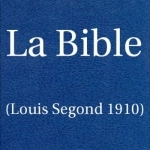
La Bible(Louis Segond 1910) French Bible
Reference
App
This application contains French Bible(Version Louis Segond 1910). Cette application contient la...
Zuky the BookBum (15 KP) rated Misery in Books
Mar 15, 2018
Also read my review here: http://bookbum.weebly.com/book-reviews/misery-by-stephen-king
<b><i>Annie Annie oh Annie please please no please dont Annie I swear to you Ill be good I swear to God Ill be good please give me a chance to be good OH ANNIE PLEASE LET ME BE GOOD -
Just a little pain. Then this nasty business will be behind us for good Paul.</b></i>
Well hot fucking damn. Is this the best book Ive read all year? <b>I think it might be.</b> I am officially a Stephen King fan. A Stephen King convert as my mother is calling me. Misery is a goddamn masterpiece. Its <i>so</i> tense. I dont know how anyone can write so well that Im actually squirming. <b>LEGIT SQUIRMING AS I READ.</b>
Misery is about a bestselling author, Paul Sheldon, who, after celebrating his completion of his next (and best) book, drinks a little too much champagne and gets himself into a nasty car accident in the middle of nowhere. He wakes to find his legs shattered but splintered (splinted???) in a mysterious house. Luckily, or unluckily, hes found himself saved and in the capable hands of his number one fan and ex-nurse, Annie Wilkes.
I put off reading Misery for, oh I dont know, maybe 5 years? I watched the film, of course, because disliking a film can be down to a number of variables, the wrong director, actors you dislike, bad script etc, but not liking a book, <i>a Stephen King book</i>, is down to one and one thing only, the author. And I was <i>so</i> terrified I wouldnt like Stephen King! Honestly, terrified is this right word for it. I didnt want to turn around in a house, no, a society, that claims Stephen King is a modern day Charles Dickens, of sorts, and say nah, not that into him myself. But lo and behold, I ended up liking both the film and the book, thank Christ. The book more so than the film, but isnt that usually the case? Although the actors for both Paul and Annie in the film version were <i>spot on.</i>
I dont think Ive ever been so vocal whilst reading a book. Misery had me yelping and oohing and arring and laughing and yucking all the way through. Kings writing is so vivid you <i>are</i> Paul Sheldon for the duration of the book. Youre Paul, rolling around in his wheelchair, holding your breath and crying and sweating, hoping that car you hear isnt Annies. Hoping shes holding those Godsent Novril tablets every few hours to subdue your pain. Wondering how the hell youre ever going to be able to escape. You completely immerse yourself in the nail biting story, page by page. This is a perfect novel from start to finish, thats all I have left to say.
If youve never read Stephen King before, start with Misery. <b>I double donkey dare you.</b>
<b><i>Annie Annie oh Annie please please no please dont Annie I swear to you Ill be good I swear to God Ill be good please give me a chance to be good OH ANNIE PLEASE LET ME BE GOOD -
Just a little pain. Then this nasty business will be behind us for good Paul.</b></i>
Well hot fucking damn. Is this the best book Ive read all year? <b>I think it might be.</b> I am officially a Stephen King fan. A Stephen King convert as my mother is calling me. Misery is a goddamn masterpiece. Its <i>so</i> tense. I dont know how anyone can write so well that Im actually squirming. <b>LEGIT SQUIRMING AS I READ.</b>
Misery is about a bestselling author, Paul Sheldon, who, after celebrating his completion of his next (and best) book, drinks a little too much champagne and gets himself into a nasty car accident in the middle of nowhere. He wakes to find his legs shattered but splintered (splinted???) in a mysterious house. Luckily, or unluckily, hes found himself saved and in the capable hands of his number one fan and ex-nurse, Annie Wilkes.
I put off reading Misery for, oh I dont know, maybe 5 years? I watched the film, of course, because disliking a film can be down to a number of variables, the wrong director, actors you dislike, bad script etc, but not liking a book, <i>a Stephen King book</i>, is down to one and one thing only, the author. And I was <i>so</i> terrified I wouldnt like Stephen King! Honestly, terrified is this right word for it. I didnt want to turn around in a house, no, a society, that claims Stephen King is a modern day Charles Dickens, of sorts, and say nah, not that into him myself. But lo and behold, I ended up liking both the film and the book, thank Christ. The book more so than the film, but isnt that usually the case? Although the actors for both Paul and Annie in the film version were <i>spot on.</i>
I dont think Ive ever been so vocal whilst reading a book. Misery had me yelping and oohing and arring and laughing and yucking all the way through. Kings writing is so vivid you <i>are</i> Paul Sheldon for the duration of the book. Youre Paul, rolling around in his wheelchair, holding your breath and crying and sweating, hoping that car you hear isnt Annies. Hoping shes holding those Godsent Novril tablets every few hours to subdue your pain. Wondering how the hell youre ever going to be able to escape. You completely immerse yourself in the nail biting story, page by page. This is a perfect novel from start to finish, thats all I have left to say.
If youve never read Stephen King before, start with Misery. <b>I double donkey dare you.</b>
Hadley (567 KP) rated Ghostly Tales: Spine-Chilling Stories of the Victorian Age in Books
Jan 20, 2021
Ghost stories (1 more)
Well-written
This collection of tales will transport you to a time when staircases creaked in old manor houses, and a candle could be blown out by a gust of wind, or by a passing ghost. Penned by some of the greatest Victorian novelists and masters of the ghost story genre, these stories come alive alongside exquisitely eerie art in this special illustrated edition.
Since this is a short story collection, I will list the stories with a short synopsis and what I liked and disliked about them.
"Oh, Whistle, and I'll Come to You, My Lad" by M.R. James
A professor decides to go on vacation to work on his golf game while doing a little side work in the town's archaeology, but when he digs up an old whistle and blows into it, he instantly regrets what the whistle brings.
Liked: the buildup to the climax was done masterfully, and the superstition that was used as the premise of the story
Disliked: that the ending is never explained
"The Old Nurse's Story" by Elizabeth Gaskell
When a governess and her ward are taken to a haunted house, they found out that everyone has to pay for their misdeeds.
Liked: the perfect example of what Victorian ghost stories were
Disliked: Nothing; I really enjoyed this one
"The Signalman" by Charles Dickens
A railroad signalman tells a co-worker that he is seeing a ghost that warns him of future accidents, but his co-worker can't tell if he's telling the truth or losing his mind.
Liked: an excellent ghost story; I wish it were an entire novel
Disliked: nothing
"The Body-Snatcher" by Robert Louis Stevenson
When a medical student realizes that the 'donated' bodies are murder victims, he's not so sure he can live with the consequences.
Liked: the ending wasn't predictable
Disliked: at the start, there's a little confusion among who is who
" The Captain of the Pole-Star" by Sir Arthur Conan Doyle
A group of whalers are stuck in the middle of the ocean because of ice burgs, but the ice is the least of their problems when they begin to hear and see supernatural things out on the ice.
Liked: the plot of the story was really good
Disliked: the run-on sentences, some of the accents were hard to decipher, and the ending wasn't explained
"The Phantom Coach" by Amelia B. Edwards
A young man loses his way while on a hunt, but soon finds help with an old man that is convinced the supernatural is real, and when he senses the young man does not, he puts him up against forces from the other side.
Liked: the story never lulled, and the descriptions of the undead were amazing
Disliked: nothing, I thought the story was really good
"The Screaming Skull" by F. Marion Crawford
When the friend of a family finds a skull in the latter's home, he begins to question whether or not the husband murdered his wife.
Liked: I love that this story is actually based off an urban legend
Disliked: the way the author kept breaking away from the story to talk to the audience; it caused the flow of the story to stop
Overall, the Victorian-era authors knew how to write a ghost story. I absolutely loved this collection of short stories. I highly recommend this book to people who love a good 'ol fashioned ghost story (not the gory ones we have today).
Since this is a short story collection, I will list the stories with a short synopsis and what I liked and disliked about them.
"Oh, Whistle, and I'll Come to You, My Lad" by M.R. James
A professor decides to go on vacation to work on his golf game while doing a little side work in the town's archaeology, but when he digs up an old whistle and blows into it, he instantly regrets what the whistle brings.
Liked: the buildup to the climax was done masterfully, and the superstition that was used as the premise of the story
Disliked: that the ending is never explained
"The Old Nurse's Story" by Elizabeth Gaskell
When a governess and her ward are taken to a haunted house, they found out that everyone has to pay for their misdeeds.
Liked: the perfect example of what Victorian ghost stories were
Disliked: Nothing; I really enjoyed this one
"The Signalman" by Charles Dickens
A railroad signalman tells a co-worker that he is seeing a ghost that warns him of future accidents, but his co-worker can't tell if he's telling the truth or losing his mind.
Liked: an excellent ghost story; I wish it were an entire novel
Disliked: nothing
"The Body-Snatcher" by Robert Louis Stevenson
When a medical student realizes that the 'donated' bodies are murder victims, he's not so sure he can live with the consequences.
Liked: the ending wasn't predictable
Disliked: at the start, there's a little confusion among who is who
" The Captain of the Pole-Star" by Sir Arthur Conan Doyle
A group of whalers are stuck in the middle of the ocean because of ice burgs, but the ice is the least of their problems when they begin to hear and see supernatural things out on the ice.
Liked: the plot of the story was really good
Disliked: the run-on sentences, some of the accents were hard to decipher, and the ending wasn't explained
"The Phantom Coach" by Amelia B. Edwards
A young man loses his way while on a hunt, but soon finds help with an old man that is convinced the supernatural is real, and when he senses the young man does not, he puts him up against forces from the other side.
Liked: the story never lulled, and the descriptions of the undead were amazing
Disliked: nothing, I thought the story was really good
"The Screaming Skull" by F. Marion Crawford
When the friend of a family finds a skull in the latter's home, he begins to question whether or not the husband murdered his wife.
Liked: I love that this story is actually based off an urban legend
Disliked: the way the author kept breaking away from the story to talk to the audience; it caused the flow of the story to stop
Overall, the Victorian-era authors knew how to write a ghost story. I absolutely loved this collection of short stories. I highly recommend this book to people who love a good 'ol fashioned ghost story (not the gory ones we have today).
